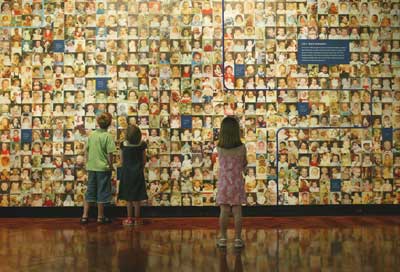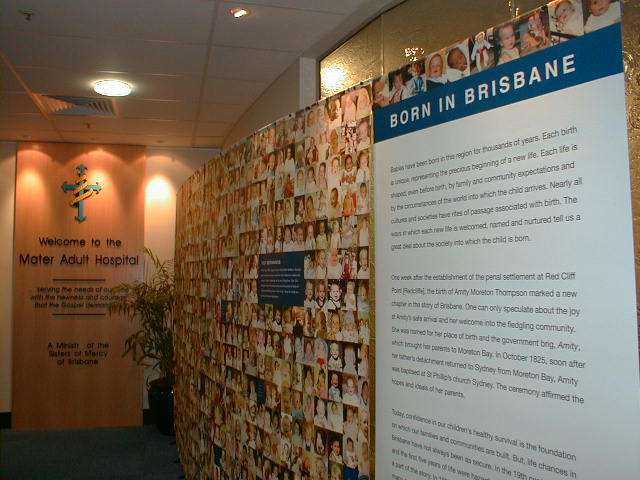Mater-University of Queensland Study of Pregnancy
1. About the Study

The Mater Misericordiae Mothers' Hospital-University of Queensland Study of Pregnancy began as a birth cohort study of 8,556 pregnant women interviewed after their first booking in clinic visit. The initial phase of data collection commenced in 1981. Later phases have collected data on both mother and child at various times after the children were born: when the children were around the ages of six months, five years, fourteen and twenty-one years old.
Between 2009 and 2012, we followed-up the Mothers separately to focus on the midlife experiences of women. The 30-year phase, between 2011 and 2014, was of the children. This phase was the first to collect blood samples with a focus on specific developmental path and risk factors for conditions such as obesity, metabolic syndrome and diabetes, and mental health.
Between 2016 and 2018, for the first time, we recruited our third generation participants, the grandchildren of our original Mothers. We investigated intergenerational and developmental pathways of childhood and adolescent obesity and the transmission of antisocial behaviour across three generations. MUSP is one of only a handful of studies worldwide that is able to examine whether maternal pregnancy, early childhood and puberty are critical periods for the development of obesity and behavioural problems not only in offspring but also for the next generation.
In 2021, 40 years after the study began, the most recent phase of the study commenced. For this phase we followed-up with our second and third generation of participants to investigate the incidence and experiences of childhood victimisation. This study explored the extent to which children and adolescents experience victimisation in Australia and the factors that contribute to this victimisation. This study will address widespread concerns about the experiences of violence by Australian children. No previous Australian population based studies have addressed this issue. Findings from this phase of the study will be available later in 2023.
The latest phase of the study is due to commence in 2023. We are looking forward to making contact with our original Mother cohort and inviting them to take part in this phase of the study which will investigate the incidence and experience of elder abuse in Australia. This is a neglected area of research with serious consequences for the wellbeing of older people. Our study, with the help of our dedicated participants, will address this issue to guide public and social welfare policies to best protect this vulnerable population.

